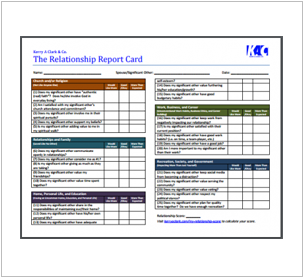Why a Growth Mindset is the Key to Next-Level Leadership?
Next-Level Leadership Starts With the Mind
As I put this content together, I’m reminding myself to breathe, think, live, and eat with the mindset of a next-level leader. Leadership is about stepping up and expecting more—first from yourself, then from those you lead. A leader is a person who does not settle for what’s ordinary or average.
Let’s establish this up front: there is no such thing as an ordinary leader. No two leaders are the same, but what they all have in common is this—they are not average. Therefore, in order to be in leadership, you can’t be average, you can’t be ordinary, you can’t be standard, you can’t be baseline; you have to be more. Leaders take people to the next level, move things forward, and inspire growth. That begins in the mind.

To lead, you must walk through the doors opened to you. You have to sharpen yourself so that you can sharpen others. As the saying goes, “You can’t give what you don’t have.” If you’re not filled up, you can’t empty yourself upon anyone else. Whether that quote came from someone else or it was original, the principle holds true: leaders develop themselves first so that they can develop others.
Your growth is compounded through consistent effort. The more you work at something, the better you get. And the better you get, the more confident you become. That’s why it’s said, “you play like you practice.” If you practice well, you’ll perform well—and you won’t have to stress when it’s time to show up. Practice builds preparation.
You Need a Plan to Become “More”
I once heard John Maxwell talk about his growth strategy—a personal development plan he follows consistently. He teaches others to create their own. Without a growth plan, you lack a predetermined method to step up, expect, and achieve more.
So, how do you develop a plan to lead at the next level? How do you unlock your God-given potential? The answer begins here:
God made you unique—gifted, called, and capable. It’s your job to get that gift into the hands of others in a way that pleases the One who made you. If you are not performing at the ideal level or to the next level you know you can achieve, it requires a plan.
Here’s where to start:
1) Identify Where You Are Right Now
You can’t grow if you don’t know your current state. On a scale from 1 to 10, where are you? Let’s say you’re a “2”—don’t aim for 10 just yet. Start with 3. Once you hit 3, aim for 4. Growth happens in stages.
Growth is continuous. There’s no finish line for those who want to maximize the gift, the skill, the talent, the leadership that we have or can produce. The key is consistent, incremental progress.
2) Define Where You Want to Go
Many people fail here—they say they want more, but they can’t articulate what “more” looks like. If you’re going to grow to a “3,” what does that actually mean? You need a clear picture.
Start by observing others who are already operating at that level. What are they doing that you’re not? What qualities do they possess? The more clearly you can define that next level, the more effectively you can pursue it.
Let’s make it practical:
If you’re driving a car and want a better one, you first need to know what you’re driving now. If you don’t know your current vehicle’s limitations, you won’t know what “better” looks like. My wife is great at this—she knows exactly what she wants in her next car because she’s taken the time to compare and evaluate what’s missing in her current one.
Leadership is the same. You need to know what “better” looks like.
Who communicates better than you? Who has more presence, productivity, or tools? Who has written more, spoken more, or influenced more? Find those examples and use them to paint your vision.
My Personal Example
One of my mentors, as you know, is John Maxwell. He’s written over 100 books—maybe closer to 200 by now. I want to be like that. My personal goal is to write at least 20 books. If he can do 100, surely I can do 20. I’ve already written a few—going from 5 to 20 is more realistic than going from 5 to 100.
But here’s the point: it’s not about the books. It’s about what the books represent.
My goal is rooted in what I call the X-Y-Z principle:
I want to do X, by Y, because of Z.
I want to write books (X) by a specific time (Y) because I want my content to live inside me (Z).
When I’m called to speak or teach, I don’t want to rely on notes or research. I want to draw from the well I’ve already filled through writing, studying, and internalizing what I teach. That’s why I write—so the content is in me. That’s what leaders do: they prepare, they practice, and they perform from overflow.
Leaders Expect More
How do leaders achieve more? They plan for it.
You need a clear strategy for growth—a way to step up, expect more, and then actually produce more. That’s next-level leadership. And it starts with one question:
What’s your plan?



Leave a Reply